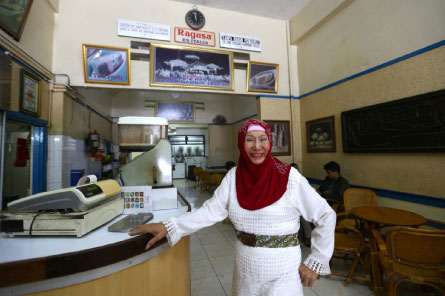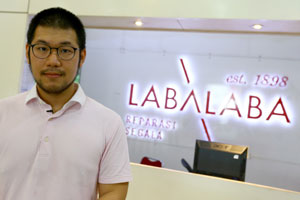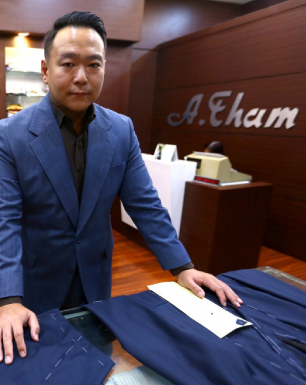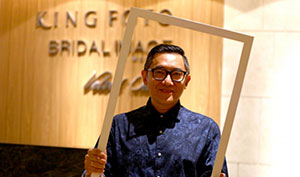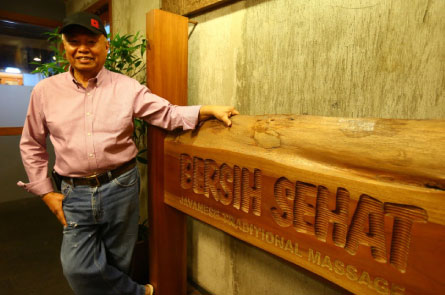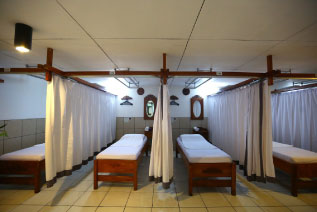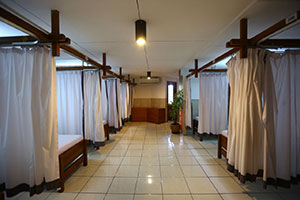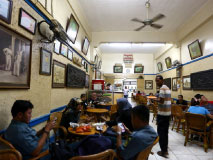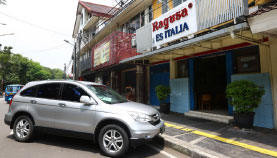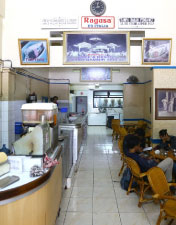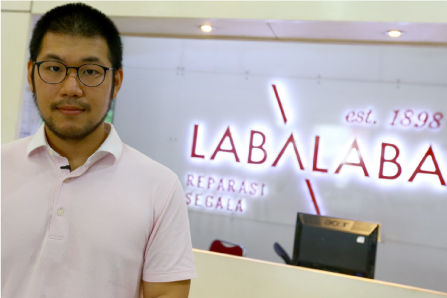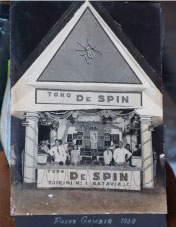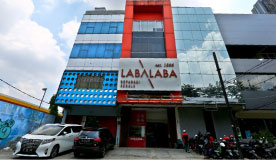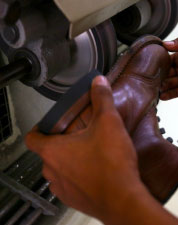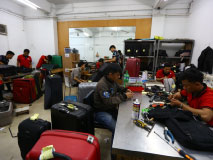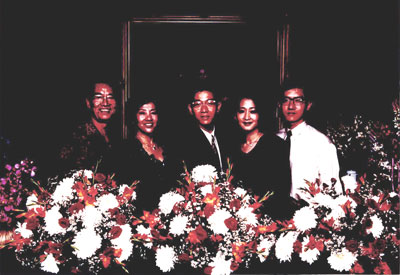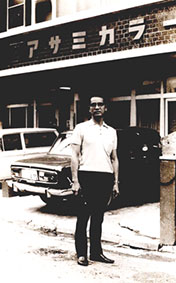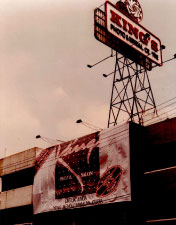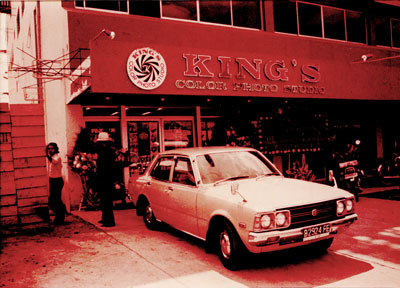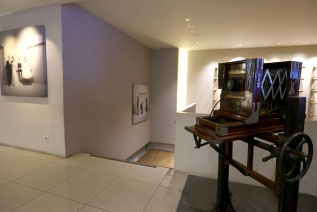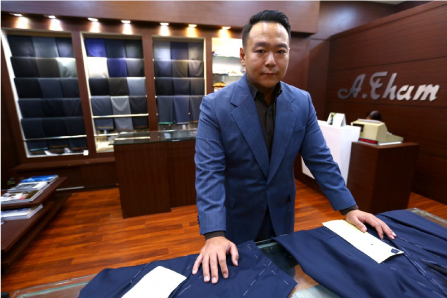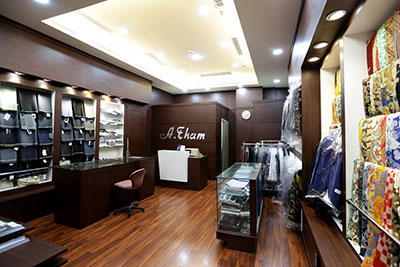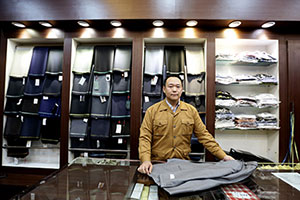121 years on, Laba-Laba still spinning as strong as a spider's web
Keshie Hernitaningtyas
The Jakarta Post/Jakarta
As the owner of fifth generation family-run business Laba-Laba, a one-stop shop for leather
repairs that has, remarkably, been around since 1898, one may think that 33-year-old Viki
Yaputra had been groomed since birth to continue in his father’s footsteps.
This could not be farther from the truth.
Unlike his older siblings, Viki always refused his father's requests to help out at the store
when he was little.
"I was never pushed to continue the business. When I was little, I refused to visit the store.
Meanwhile, my three siblings were taught to help out at the store after school. Perhaps
since I was the youngest, my father just let me do what I wanted, although he often
grumbled about my habit of playing games and watching TV," Viki recently told The Jakarta
Post during an interview at Laba-Laba Arteri Pondok Indah in South Jakarta.
After getting his medical microbiology degree abroad, Viki went on to work outside the
country. However, since he loves challenges, meeting people and solving problems, he
decided to return home.
"Turns out, I'm the one who ended up continuing the business. There's no one else doing it;
all my siblings are now working and living abroad," he said.
The company was founded by Jap A Ten as De Spin, which means "spider" in Dutch, as the
company seeks to offer a quality of service that is as strong as a spider's web. Later renamed
Laba-Laba, the company’s first store was located in Cikini, Central Jakarta, with the business
then passed down to the second and third generations. The oldest son of the fourth
generation later inherited the Cikini store, while his younger brothers ran new stores in
Pasar Baru, Central Jakarta, and Panglima Polim, South Jakarta.
Since 2010, Viki has managed the Panglima Polim store after inheriting it from his 63-year-
old father, Erwin. He has since expanded the business in many ways, including by opening
five new branches (Arteri Pondok Indah, Grogol in West Jakarta, Gading Serpong in
Tangerang, Depok in West Java, and Surabaya in East Java), doing business-to-business
(B2B) sales and rebranding by transforming from a mere workshop to a bright modern retail
shop.
JP/Courtesy of Laba-laba
"The difference in profit of having one store compared to two or three stores is not much
since the cost are higher as well. However, it changes the system; I can have a bigger team,
which means I can delegate [duties] more. It then allows me to tackle direction-related
matters, such as where the company is going, our vision and mission, and to make investments, such as in machinery," said Viki, adding that his father had questioned his decision to open the new stores.
"We have a very different mindset. 'Why do you need to open so many stores? Just one is
enough' he said," Viki shared, chuckling. "I still consult him on many things, though. He was
a very hands-on boss."
The Metro Pondok Indah branch is currently the brand's only store that serves B2B clients,
which now make up around 30 percent of its market.
"We have previously served B2B clients, such as luxury suitcase brands, but unofficially.
However, five years ago we began to offer them more conveniences through B2B channel
agreements, which include fixed prices and pickup services."
With the fast pace of modern lifestyles and fashion trends, handling high customer
expectations is one of the businesses’ biggest challenges.
"Many people still think that we can repair their items to be like new. We can, but not 100
percent. Our main focus is not cosmetic, but functionality. We are limited in our work since
we don't have the original parts. We try telling them this from the start, but sometimes our
customers' expectations are too high and they are disappointed."
The fact that today's products are much cheaper due to being mass-produced also poses a
challenge. "Products made in factories and sold online are getting more and more
affordable. However, our employees sometimes need half to a day's work to repair them,
no matter how cheap they are. Hence, my task is to try to run the business as efficiently as
possible so that all our customers can afford our services."
Educating the company’s employees, which currently total 100, is also crucial to expanding
the business.
"Fifty percent of our employees have been with us for more than 10 years; some even for
40 years. Most of them are technicians and come from outside the city. My job is to ensure
that they discard old values and mindsets that are negative, such as laziness and opposition
to change."
As a long-established brand, Laba-Laba enjoys recognition among people of older
generations. However, it is not so well known among younger people.
"The young generation knows little about us. Those who do are usually introduced to us by
their parents. Hence, we try to reach young people and mobile users through social media
campaigns and collaboration with [smart locker logistics company] PopBox Asia," said Viki.
From bags and shoes to suitcases, sofas, makeup boxes, toys and headphones, even helping
people to open safe-deposit boxes after the owner dies, Laba-Laba is committed to staying
true to its tagline "reparasi segala" (fix everything).
"We can basically repair anything. Be sure to call us first to check," Viki said.
"In the old days, we were famous for preserving animals. People would bring dead tigers
and cendrawasih to our store. We then stuffed them and preserved them using formalin.
Even now, one or two customers have asked us whether we still offer this service, to which,
of course, we say no," he added, smiling.



